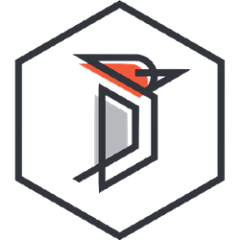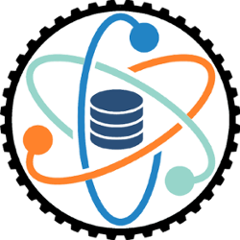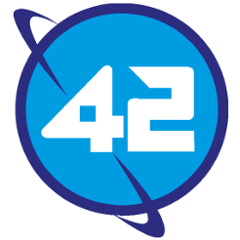Languages
jdbc-perf-logger-java8-tests
com.github.sylvainlaurent.jdbcperflogger : jdbc-perf-logger-java8-testsParent/Reactor project for JDBC Performance Logger
Last Version: 0.7.0
Release Date:Last Version: 2.10.4
Release Date:Dropwizard Java 8 Bundle
io.dropwizard.modules : dropwizard-java8-parentAddon bundle for Dropwizard to support Java 8 features
Last Version: 0.9.0-1
Release Date:ObjectosMultiRelease processor
br.com.objectos.oss-java8 : objectos-multirelease-processorThe ObjectosMultiRelease processor helps the generation of release specific jars by generating code
Last Version: 1.0.0
Release Date:Last Version: 4.0.12-alpha
Release Date:Adapter: Java 8
io.github.zawn.retrofit2 : adapter-java8A Retrofit CallAdapter for Java 8's CompletableFuture.
Last Version: 2.10.6
Release Date:Last Version: 3.1.0
Release Date:Last Version: 0.5.0
Release Date:java8-utils
com.nitorcreations : java8utilsThe package provides helper methods for interacting with, e.g., the stream features of Java 8 and above.
Last Version: 1.0.1
Release Date:restx-samplest-java8
io.restx : restx-samplest-java8Sonatype helps open source projects to set up Maven repositories on https://oss.sonatype.org/
Last Version: 0.35.1
Release Date:Last Version: 2.10.2
Release Date:Last Version: 1.4.5
Release Date:Last Version: 1.1.4
Release Date:Last Version: 0.11.1
Release Date:Last Version: 0.1-incubating
Release Date:Last Version: 0.5.3
Release Date:jersey-examples-feed-combiner-java8-webapp
org.glassfish.jersey.examples : feed-combiner-java8-webappJersey Web Application (Servlet) examples parent POM.
Last Version: 2.27
Release Date:Google Cloud Dataflow SDK for Java - Java 8 Examples Archetype
com.google.cloud.dataflow : google-cloud-dataflow-java-archetypes-examples-java8Google Cloud Dataflow SDK for Java is a distribution of Apache Beam designed to simplify usage of Apache Beam on Google Cloud Dataflow service. This archetype creates a project containing all the example pipelines targeting Java 8.
Last Version: 2.2.0
Release Date:Spring Data Build - Java 8 Stubs
org.springframework.data.build : spring-data-java8-stubModules to centralize common resources and configuration for Spring Data Maven builds.
Last Version: 1.4.6.RELEASE
Release Date:Last Version: 1.0.73
Release Date:freemarker-java8
com.munich-airport.freemarker : freemarker-java8This is a tiny Java library that adds basic format support for the new Java 8 date/time api in FreeMarker. Based on the freemarker-java8 library published by Amedia Utvikling AS.
Last Version: 2.0.0
Release Date:Last Version: 0.9.3
Release Date:Objectos Testing :: Concurrent
br.com.objectos.oss-java8 : objectos-testing-concurrentObjectos Concurrent related utilities to be used in tests only.
Last Version: 3.1.0
Release Date:Last Version: 0.5.3
Release Date:java8-junit4-quickstart
org.spilth : java8-junit4-quickstartA Maven Archetype for creating a Java 8 project using Junit 4
Last Version: 1.0.2
Release Date:Last Version: 0.0.19
Release Date:Checkstyle Addons
com.thomasjensen.checkstyle.addons : checkstyle-addons-java8aAdditional Checkstyle Checks
Last Version: 7.0.1
Release Date:Last Version: 0.5.1
Release Date:net.sourceforge.streamsupport:http2client-java8
net.sourceforge.streamsupport : http2client-java8Experimental Java 8 backport of the incubating Java 10 HTTP/2 and WebSocket API
Last Version: 0.1.1
Release Date:Last Version: 1.0.0
Release Date:Last Version: 1.1
Release Date:Java 8 Currying Interfaces
uk.org.potes.java8 : java8-curryingProvides functional interfaces for currying functions of up to 10 arguments.
Last Version: 0.0.1
Release Date:DataNucleus Java8 plugin
org.datanucleus : datanucleus-java8Plugin providing DataNucleus support for Java8 types.
Last Version: 4.2.3
Release Date:Last Version: 1.6.4
Release Date:pact-jvm-consumer-java8_2.11
au.com.dius : pact-jvm-consumer-java8_2.11# pact-jvm-consumer-java8 Provides a Java8 lambda based DSL for use with Junit to build consumer tests. # A Lambda DSL for Pact This is an extension for the pact DSL provided by [pact-jvm-consumer](../pact-jvm-consumer). The difference between the default pact DSL and this lambda DSL is, as the name suggests, the usage of lambdas. The use of lambdas makes the code much cleaner. ## Why a new DSL implementation? The lambda DSL solves the following two main issues. Both are visible in the following code sample: ```java new PactDslJsonArray() .array() # open an array .stringValue("a1") # choose the method that is valid for arrays .stringValue("a2") # choose the method that is valid for arrays .closeArray() # close the array .array() # open an array .numberValue(1) # choose the method that is valid for arrays .numberValue(2) # choose the method that is valid for arrays .closeArray() # close the array .array() # open an array .object() # now we work with an object .stringValue("foo", "Foo") # choose the method that is valid for objects .closeObject() # close the object and we're back in the array .closeArray() # close the array ``` ### The existing DSL is quite error-prone Methods may only be called in certain states. For example `object()` may only be called when you're currently working on an array whereas `object(name)` is only allowed to be called when working on an object. But both of the methods are available. You'll find out at runtime if you're using the correct method. Finally, the need for opening and closing objects and arrays makes usage cumbersome. The lambda DSL has no ambiguous methods and there's no need to close objects and arrays as all the work on such an object is wrapped in a lamda call. ### The existing DSL is hard to read When formatting your source code with an IDE the code becomes hard to read as there's no indentation possible. Of course, you could do it by hand but we want auto formatting! Auto formatting works great for the new DSL! ```java array.object((o) -> { o.stringValue("foo", "Foo"); # an attribute o.stringValue("bar", "Bar"); # an attribute o.object("tar", (tarObject) -> { # an attribute with a nested object tarObject.stringValue("a", "A"); # attribute of the nested object tarObject.stringValue("b", "B"); # attribute of the nested object }) }); ``` ## Installation ### Maven ``` <dependency> <groupId>au.com.dius</groupId> <artifactId>pact-jvm-consumer-java8_2.12</artifactId> <version>${pact.version}</version> </dependency> ``` ## Usage Start with a static import of `LambdaDsl`. This class contains factory methods for the lambda dsl extension. When you come accross the `body()` method of `PactDslWithProvider` builder start using the new extensions. The call to `LambdaDsl` replaces the call to instance `new PactDslJsonArray()` and `new PactDslJsonBody()` of the pact library. ```java io.pactfoundation.consumer.dsl.LambdaDsl.* ``` ### Response body as json array ```java import static io.pactfoundation.consumer.dsl.LambdaDsl.newJsonArray; ... PactDslWithProvider builder = ... builder.given("some state") .uponReceiving("a request") .path("/my-app/my-service") .method("GET") .willRespondWith() .status(200) .body(newJsonArray((a) -> { a.stringValue("a1"); a.stringValue("a2"); }).build()); ``` ### Response body as json object ```java import static io.pactfoundation.consumer.dsl.LambdaDsl.newJsonBody; ... PactDslWithProvider builder = ... builder.given("some state") .uponReceiving("a request") .path("/my-app/my-service") .method("GET") .willRespondWith() .status(200) .body(newJsonBody((o) -> { o.stringValue("foo", "Foo"); o.stringValue("bar", "Bar"); }).build()); ``` ### Examples #### Simple Json object When creating simple json structures the difference between the two approaches isn't big. ##### JSON ```json { "bar": "Bar", "foo": "Foo" } ``` ##### Pact DSL ```java new PactDslJsonBody() .stringValue("foo", "Foo") .stringValue("bar", "Bar") ``` ##### Lambda DSL ```java newJsonBody((o) -> { o.stringValue("foo", "Foo"); o.stringValue("bar", "Bar"); }).build() ``` #### An array of arrays When we come to more complex constructs with arrays and nested objects the beauty of lambdas become visible! ##### JSON ```json [ ["a1", "a2"], [1, 2], [{"foo": "Foo"}] ] ``` ##### Pact DSL ```java new PactDslJsonArray() .array() .stringValue("a1") .stringValue("a2") .closeArray() .array() .numberValue(1) .numberValue(2) .closeArray() .array() .object() .stringValue("foo", "Foo") .closeObject() .closeArray() ``` ##### Lambda DSL ```java newJsonArray((rootArray) -> { rootArray.array((a) -> a.stringValue("a1").stringValue("a2")); rootArray.array((a) -> a.numberValue(1).numberValue(2)); rootArray.array((a) -> a.object((o) -> o.stringValue("foo", "Foo")); }).build() ```
Last Version: 3.5.24
Release Date:ModelMapper Module Java8
com.github.chhsiao90 : modelmapper-module-java8ModelMapper Module for Java8
Last Version: 1.2.1
Release Date:pact-jvm-consumer-java8
au.com.dius : pact-jvm-consumer-java8# pact-jvm-consumer-java8 Provides a Java8 lambda based DSL for use with Junit to build consumer tests. # A Lambda DSL for Pact This is an extension for the pact DSL provided by [pact-jvm-consumer](../pact-jvm-consumer). The difference between the default pact DSL and this lambda DSL is, as the name suggests, the usage of lambdas. The use of lambdas makes the code much cleaner. ## Why a new DSL implementation? The lambda DSL solves the following two main issues. Both are visible in the following code sample: ```java new PactDslJsonArray() .array() # open an array .stringValue("a1") # choose the method that is valid for arrays .stringValue("a2") # choose the method that is valid for arrays .closeArray() # close the array .array() # open an array .numberValue(1) # choose the method that is valid for arrays .numberValue(2) # choose the method that is valid for arrays .closeArray() # close the array .array() # open an array .object() # now we work with an object .stringValue("foo", "Foo") # choose the method that is valid for objects .closeObject() # close the object and we're back in the array .closeArray() # close the array ``` ### The existing DSL is quite error-prone Methods may only be called in certain states. For example `object()` may only be called when you're currently working on an array whereas `object(name)` is only allowed to be called when working on an object. But both of the methods are available. You'll find out at runtime if you're using the correct method. Finally, the need for opening and closing objects and arrays makes usage cumbersome. The lambda DSL has no ambiguous methods and there's no need to close objects and arrays as all the work on such an object is wrapped in a lamda call. ### The existing DSL is hard to read When formatting your source code with an IDE the code becomes hard to read as there's no indentation possible. Of course, you could do it by hand but we want auto formatting! Auto formatting works great for the new DSL! ```java array.object((o) -> { o.stringValue("foo", "Foo"); # an attribute o.stringValue("bar", "Bar"); # an attribute o.object("tar", (tarObject) -> { # an attribute with a nested object tarObject.stringValue("a", "A"); # attribute of the nested object tarObject.stringValue("b", "B"); # attribute of the nested object }) }); ``` ## Installation ### Maven ``` <dependency> <groupId>au.com.dius</groupId> <artifactId>pact-jvm-consumer-java8_2.12</artifactId> <version>${pact.version}</version> </dependency> ``` ## Usage Start with a static import of `LambdaDsl`. This class contains factory methods for the lambda dsl extension. When you come accross the `body()` method of `PactDslWithProvider` builder start using the new extensions. The call to `LambdaDsl` replaces the call to instance `new PactDslJsonArray()` and `new PactDslJsonBody()` of the pact library. ```java io.pactfoundation.consumer.dsl.LambdaDsl.* ``` ### Response body as json array ```java import static io.pactfoundation.consumer.dsl.LambdaDsl.newJsonArray; ... PactDslWithProvider builder = ... builder.given("some state") .uponReceiving("a request") .path("/my-app/my-service") .method("GET") .willRespondWith() .status(200) .body(newJsonArray((a) -> { a.stringValue("a1"); a.stringValue("a2"); }).build()); ``` ### Response body as json object ```java import static io.pactfoundation.consumer.dsl.LambdaDsl.newJsonBody; ... PactDslWithProvider builder = ... builder.given("some state") .uponReceiving("a request") .path("/my-app/my-service") .method("GET") .willRespondWith() .status(200) .body(newJsonBody((o) -> { o.stringValue("foo", "Foo"); o.stringValue("bar", "Bar"); }).build()); ``` ### Examples #### Simple Json object When creating simple json structures the difference between the two approaches isn't big. ##### JSON ```json { "bar": "Bar", "foo": "Foo" } ``` ##### Pact DSL ```java new PactDslJsonBody() .stringValue("foo", "Foo") .stringValue("bar", "Bar") ``` ##### Lambda DSL ```java newJsonBody((o) -> { o.stringValue("foo", "Foo"); o.stringValue("bar", "Bar"); }).build(); ``` #### An array of arrays When we come to more complex constructs with arrays and nested objects the beauty of lambdas become visible! ##### JSON ```json [ ["a1", "a2"], [1, 2], [{"foo": "Foo"}] ] ``` ##### Pact DSL ```java new PactDslJsonArray() .array() .stringValue("a1") .stringValue("a2") .closeArray() .array() .numberValue(1) .numberValue(2) .closeArray() .array() .object() .stringValue("foo", "Foo") .closeObject() .closeArray(); ``` ##### Lambda DSL ```java newJsonArray((rootArray) -> { rootArray.array((a) -> a.stringValue("a1").stringValue("a2")); rootArray.array((a) -> a.numberValue(1).numberValue(2)); rootArray.array((a) -> a.object((o) -> o.stringValue("foo", "Foo"))); }).build(); ``` ##### Kotlin Lambda DSL ```kotlin newJsonArray { newArray { stringValue("a1") stringValue("a2") } newArray { numberValue(1) numberValue(2) } newArray { newObject { stringValue("foo", "Foo") } } } ```
Last Version: 4.0.10
Release Date:java8-parent
net.leanix.poms : java8-parentParent pom for Java projects that are built with Java 8.
Last Version: 0.8.3
Release Date:Cirneco's Hamcrest Extensions for JDK8
it.ozimov : java8-hamcrest-matchersAn extension to make unit test easier with Hamcrest and Java8.
Last Version: 1.3.0
Release Date:beanie-compatibility-java8
nl.42 : beanie-compatibility-java8Library for generating and testing beans.
Last Version: 3.1.0
Release Date:tile-java8
io.featurehub.sdk.tiles : tile-java8tile java contains plugins required for java application creation. It is focused on Java 8 and is designed to allow us to side-load plugins in a consistent fashion across the java-sdk without repeating ourselves.
Last Version: 1.1
Release Date:com.rubanau:appMapAgent
com.rubanau : appMapAgent-java8Inspect and record the execution of Java for use with App Land
Last Version: 0.6.1
Release Date:Last Version: 0.0.111
Release Date:flexy-test-hikaricp-java8
com.vladmihalcea.flexy-pool : flexy-test-hikaricp-java8The flexible pool HikariCP Java 8 test
Last Version: 2.2.3
Release Date:future-converter-rxjava2-java8
net.javacrumbs.future-converter : future-converter-rxjava2-java8Sonatype helps open source projects to set up Maven repositories on https://oss.sonatype.org/
Last Version: 1.2.0
Release Date:tile-java8
com.bluetrainsoftware.tiles : tile-java8tile java contains plugins required for java application creation. It is focused on Java 8.
Last Version: 1.1
Release Date:Dropwizard with Java 8 support
com.github.joschi : dropwizard-java8Addon bundle for Dropwizard to support Java 8 features
Last Version: 0.2.0
Release Date:Apache Beam :: SDKs :: Java :: Java 8 Tests
org.apache.beam : beam-sdks-java-java8testsApache Beam Java SDK provides a simple, Java-based interface for processing virtually any size data. This artifact includes tests of the SDK from a Java 8 user.
Last Version: 2.3.0
Release Date:Array Hash Tools
com.github.fedorov-s-n.aht : aht-java8Concurrent lock-free collections with O(1) access time
Last Version: 1.0
Release Date:Last Version: 0.1.2
Release Date:













